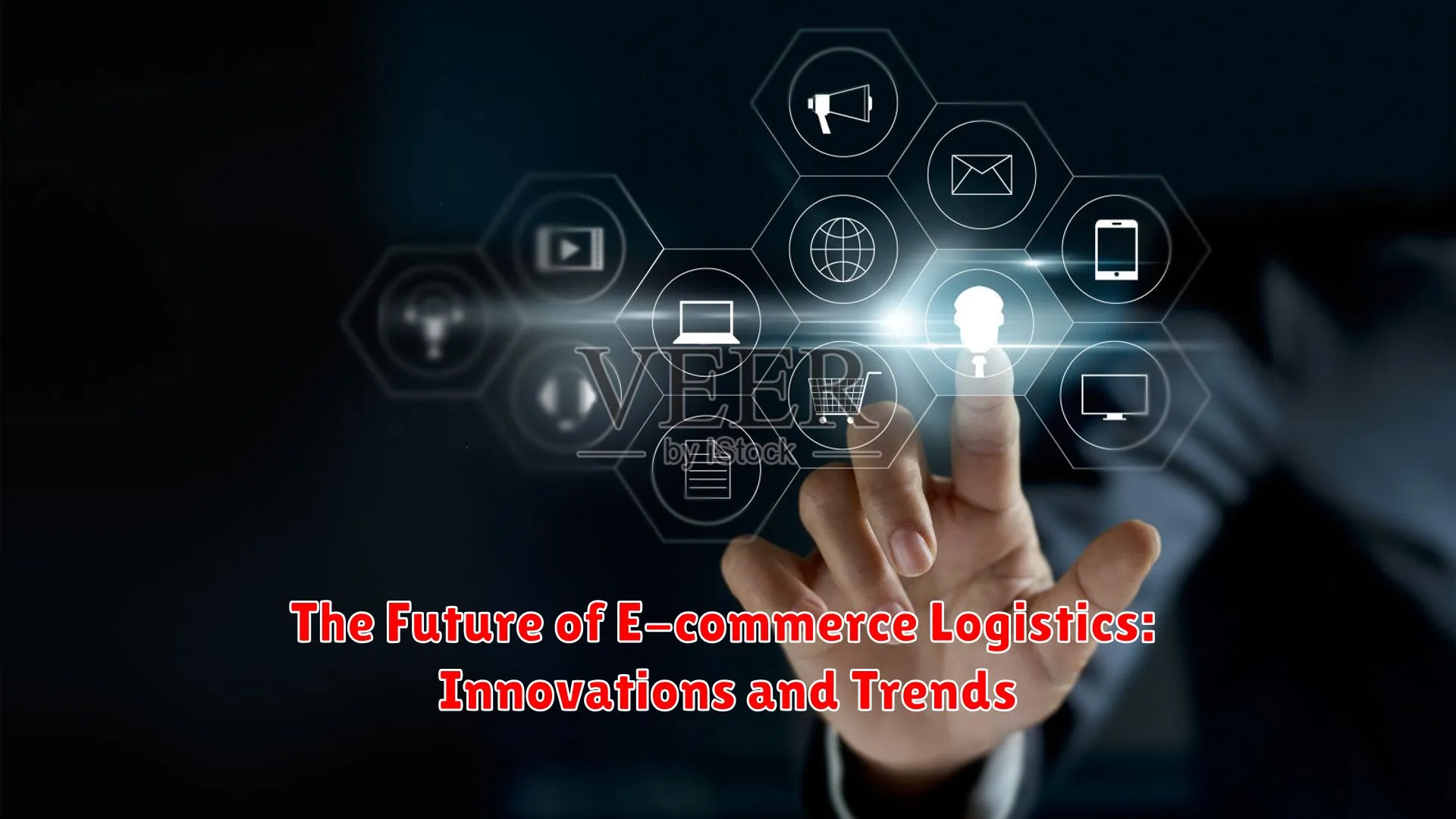Explore the exciting advancements shaping the future of E-commerce logistics, from autonomous delivery drones to AI-powered supply chain optimization. Dive into the latest innovations and trends revolutionizing the way goods are transported and delivered in the digital age.
The Evolution of E-commerce Logistics

In the fast-paced world of e-commerce, the logistics sector has seen a significant evolution over the years. From traditional methods to cutting-edge innovations, e-commerce logistics have transformed to meet the demands of online retailers and customers alike.
One of the key aspects of this evolution is the shift towards automated systems. With the rise of technology, e-commerce companies are increasingly turning to automation to streamline their logistics processes. Automated warehouses, robotic order fulfillment, and AI-powered supply chain management have become essential tools in optimizing efficiency and reducing costs.
Moreover, the integration of real-time tracking has revolutionized the way goods are transported and delivered. Customers can now track their orders from the warehouse to their doorstep, providing visibility and transparency throughout the shipping process.
The evolution of e-commerce logistics has also led to the rise of eco-friendly practices. With a growing focus on sustainability, many companies are implementing green initiatives such as eco-friendly packaging, electric delivery vehicles, and alternative energy sources to reduce their carbon footprint.
As we look towards the future, it is clear that innovation will continue to drive the evolution of e-commerce logistics. From drone deliveries to smart warehouses, the possibilities are endless as technology continues to reshape the way goods are bought, sold, and delivered online.
Emerging Technologies in Logistics and Delivery
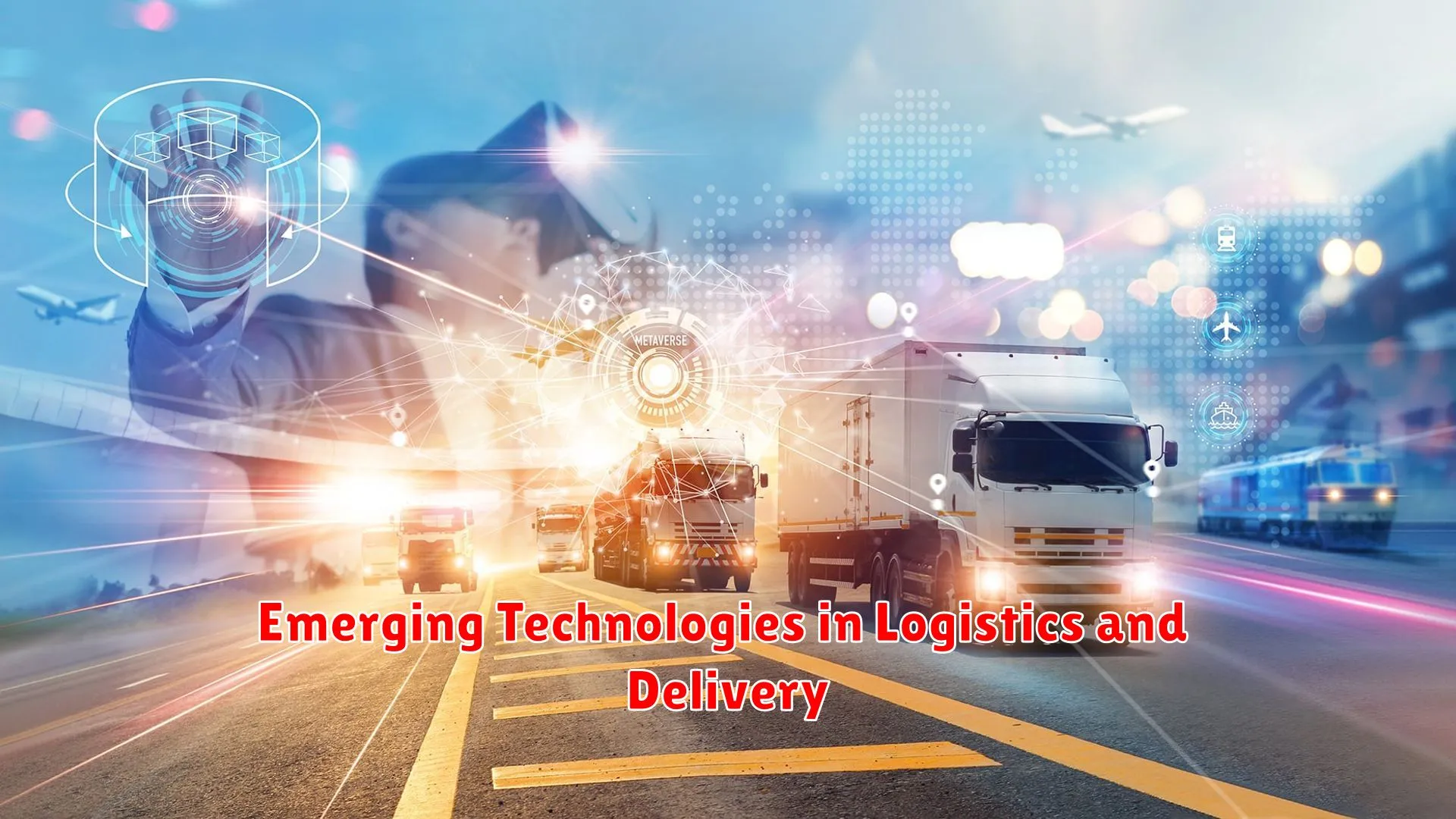
In the rapidly evolving landscape of e-commerce logistics, the integration of emerging technologies is revolutionizing the way goods are transported and delivered to customers. These innovative advancements are reshaping the future of supply chain management, ensuring efficiency, transparency, and customer satisfaction.
One key technology making waves in logistics and delivery is autonomous vehicles. From self-driving trucks to drones, these automated systems are streamlining last-mile deliveries and reducing operational costs. By leveraging AI and machine learning, these vehicles can navigate routes, optimize delivery schedules, and enhance overall fleet management.
Moreover, blockchain technology is gaining traction in the logistics sector, offering enhanced security and transparency in tracking shipments. Through blockchain’s decentralized ledger system, every step of the supply chain can be recorded, ensuring authenticity and preventing unauthorized tampering.
Another exciting development is the utilization of Internet of Things (IoT) devices in logistics. These interconnected devices can provide real-time tracking of goods, monitor environmental conditions, and even predict maintenance needs, leading to improved inventory management and reduced delays.
Furthermore, the implementation of augmented reality (AR) and virtual reality (VR) technologies is enhancing the training of logistics personnel and improving warehouse operations. By offering immersive experiences and simulations, these technologies can optimize workflows, reduce errors, and increase productivity.
As e-commerce continues to thrive, the adoption of these emerging technologies in logistics and delivery will be crucial for businesses to stay competitive and meet the ever-growing demands of online shoppers. Embracing innovation in supply chain operations is key to anticipating and adapting to the dynamic future of e-commerce logistics.
The Impact of Same-Day and Next-Day Delivery
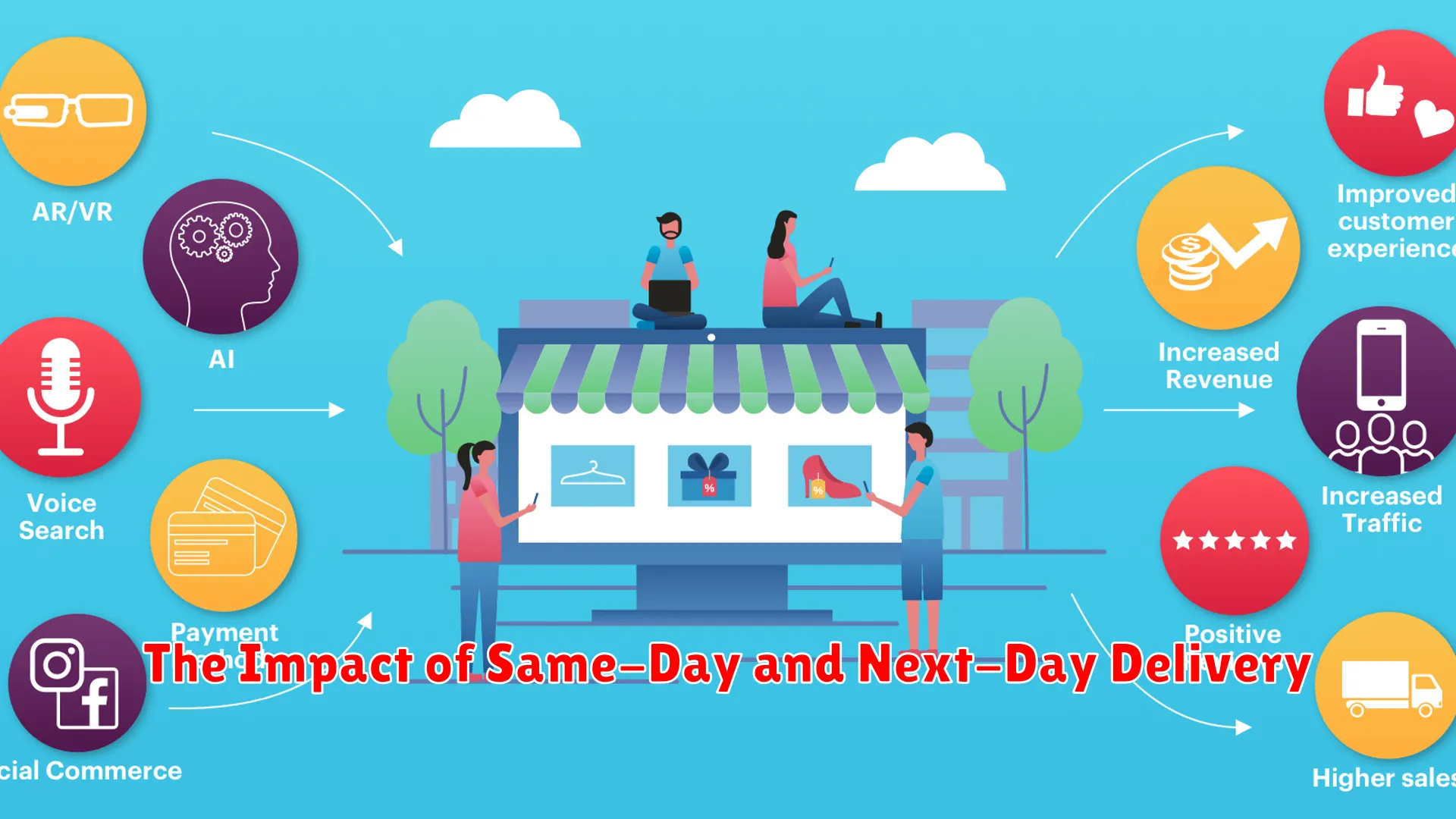
In the realm of e-commerce logistics, the introduction of same-day and next-day delivery services has revolutionized the way customers experience online shopping. These expedited shipping options have significantly altered consumer expectations and shaped the future landscape of e-commerce operations.
One of the immediate impacts of same-day and next-day delivery is the enhanced customer satisfaction it offers. Customers now have the convenience of receiving their orders in a timely manner, addressing their desire for instant gratification and reducing wait times. This improved delivery speed can lead to increased customer loyalty and repeat purchases.
Moreover, the implementation of rapid delivery services has necessitated strategic changes within the logistics and supply chain systems of e-commerce businesses. Companies are investing in advanced technologies such as automation and predictive analytics to streamline their operations and meet the demand for quick order fulfillment.
From a competitive standpoint, offering same-day and next-day delivery can give e-commerce retailers a distinct advantage in the market. It enables businesses to differentiate themselves from competitors and attract customers seeking expedited shipping options. This competitive edge can drive increased sales and market share for enterprises that prioritize fast and efficient delivery services.
Sustainable Practices in E-commerce Logistics
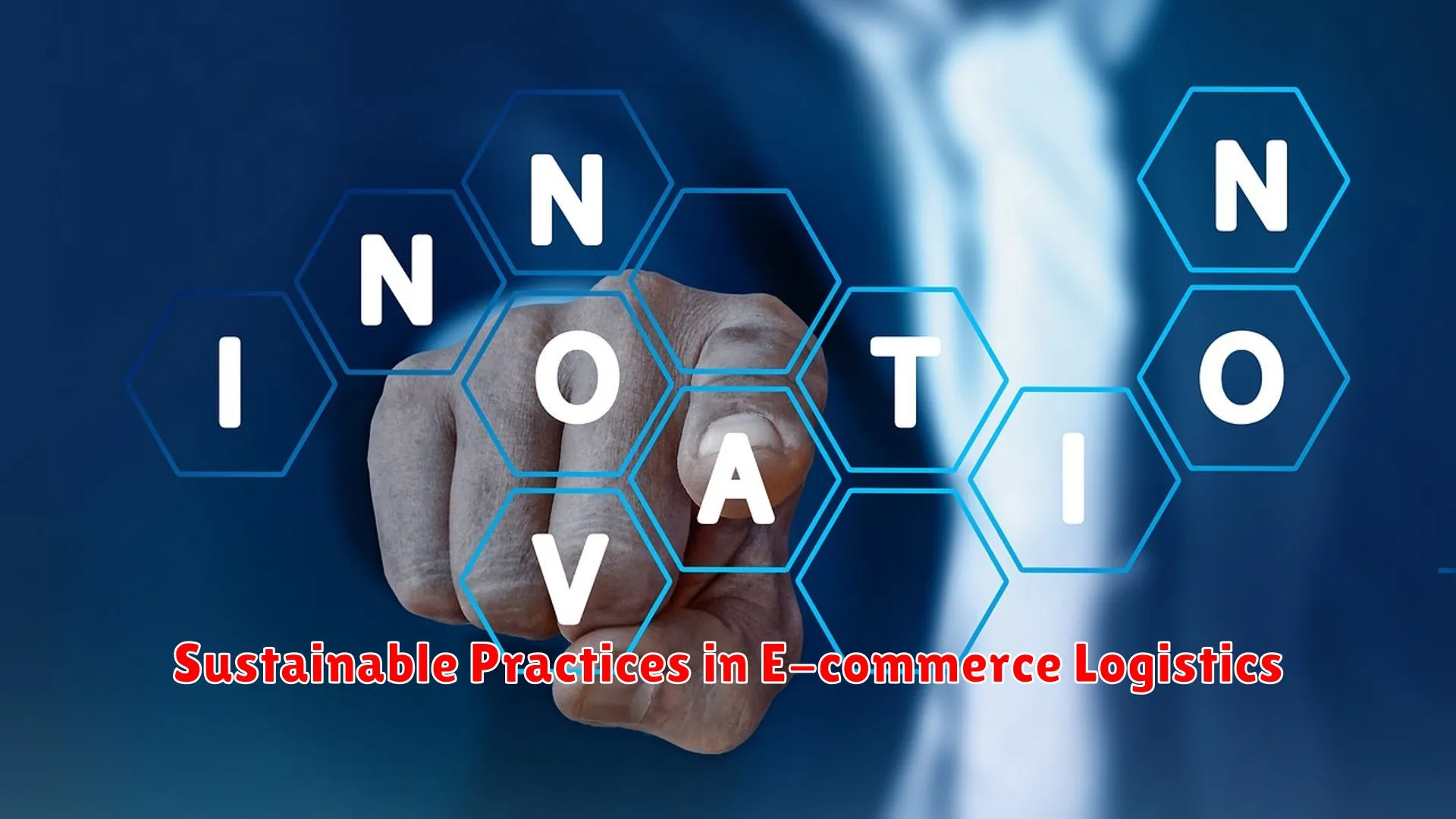
E-commerce logistics has witnessed significant growth in recent years, leading to concerns regarding its environmental impact. As the sector continues to expand, the need for sustainable practices in e-commerce logistics becomes increasingly crucial.
1. Green Packaging: Utilizing eco-friendly packaging materials, such as recycled cardboard and biodegradable plastics, can significantly reduce the carbon footprint of e-commerce logistics operations.
2. Efficient Routing: Implementing smart routing algorithms and optimizing delivery routes can minimize fuel consumption and reduce greenhouse gas emissions.
3. Last-Mile Delivery Solutions: Exploring innovative last-mile delivery options, such as electric vehicles and bike couriers, can help decrease pollution and congestion in urban areas.
4. Reverse Logistics: Establishing an efficient reverse logistics system for product returns and recycling can promote a circular economy and reduce waste generation.
5. Collaboration and Partnerships: Collaborating with suppliers, transportation providers, and other stakeholders to promote sustainable practices throughout the e-commerce supply chain can lead to collective efforts in reducing environmental impact.
The Role of Data Analytics in Optimizing Logistics

In the dynamic world of e-commerce logistics, the integration of data analytics plays a pivotal role in enhancing operational efficiency and customer satisfaction. Data analytics provides businesses with valuable insights and information to streamline their logistics processes and meet the evolving demands of today’s consumers.
Real-time Tracking and Optimization: Data analytics allows companies to track shipments, predict delivery times, and optimize routes in real-time. This leads to faster deliveries, reduced costs, and improved overall supply chain management.
Inventory Management: By leveraging data analytics, e-commerce companies can gain better visibility into their inventory levels, demand fluctuations, and stocking requirements. This leads to efficient inventory management, reduced stockouts, and optimized warehouse operations.
Customer Insights and Personalization: Data analytics helps businesses understand customer preferences, behaviors, and trends. By analyzing this data, companies can personalize product recommendations, offer tailored promotions, and enhance the overall shopping experience for customers.
Risk Mitigation and Decision Making: Through data analytics, e-commerce logistics firms can proactively identify potential risks, such as delivery delays or disruptions in the supply chain. This enables quick decision-making and effective risk mitigation strategies to ensure smooth operations.
Continuous Improvement and Innovation: By analyzing data on a continuous basis, businesses can identify areas for improvement, implement innovative solutions, and stay ahead of the competition in the ever-evolving e-commerce landscape.
Collaboration and Partnerships in the Logistics Ecosystem
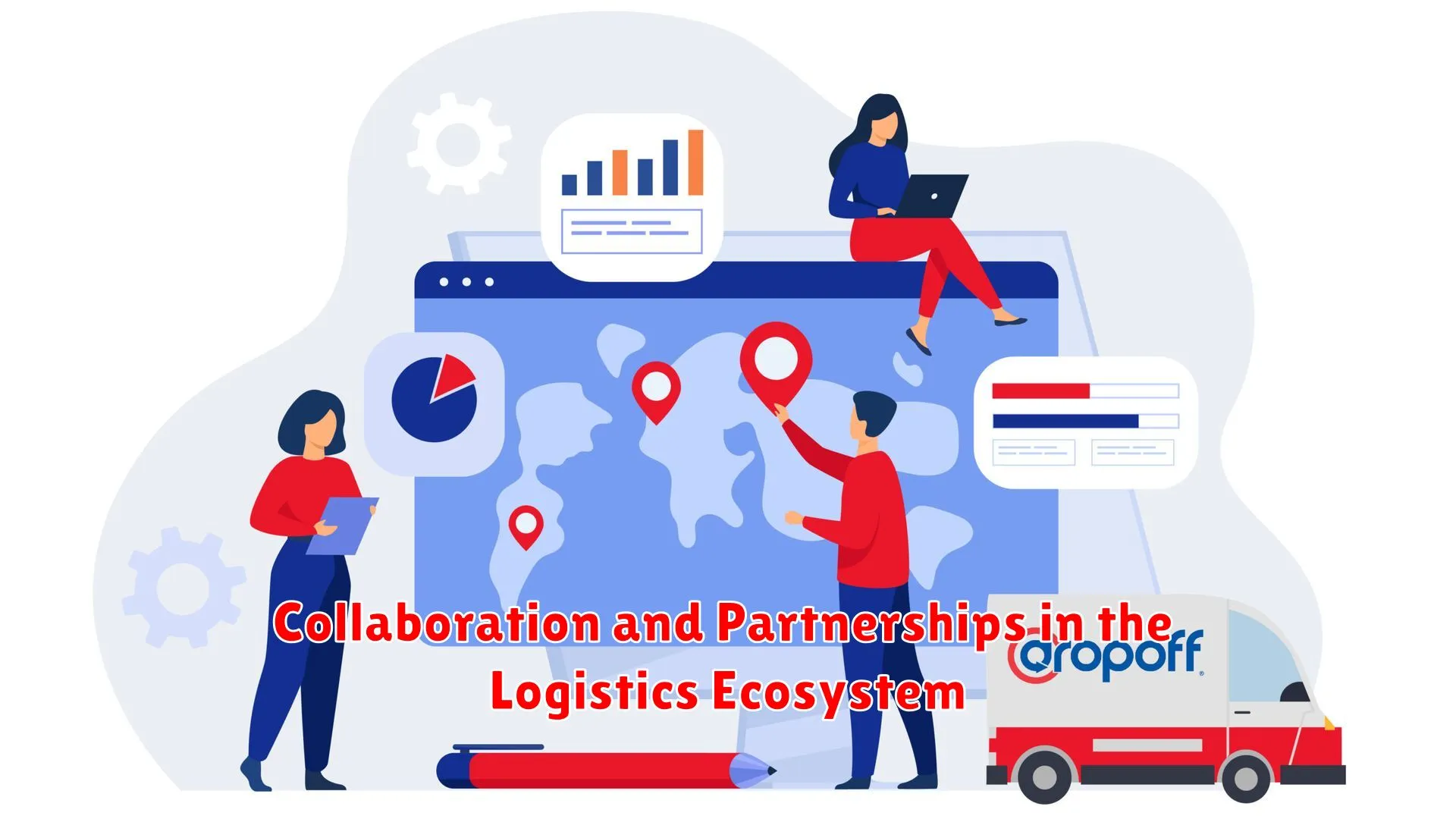
In the rapidly evolving landscape of e-commerce logistics, collaboration and partnerships play a crucial role in driving innovation and efficiency across the supply chain. As the demand for faster delivery and seamless customer experiences continues to rise, companies in the logistics industry are increasingly turning to strategic alliances and collaborations to meet these challenges head-on.
Collaborative Warehousing: One key trend in e-commerce logistics is the emergence of collaborative warehousing solutions. By sharing warehousing space and resources with other companies, businesses can reduce costs, optimize inventory management, and improve order fulfillment speed.
Partnerships with Technology Providers: Another important aspect of collaboration in the logistics ecosystem is forming partnerships with technology providers. By leveraging cutting-edge technologies such as AI, IoT, and blockchain, companies can enhance their supply chain visibility, automate processes, and achieve greater operational efficiency.
Last-Mile Delivery Partnerships: Last-mile delivery is a critical component of e-commerce logistics, and partnering with third-party delivery providers can help businesses overcome challenges such as high delivery costs and the need for fast deliveries. Collaborating with local couriers or using crowd-shipping platforms can improve delivery speed and customer satisfaction.
Sustainability Collaborations: Sustainability is becoming increasingly important in the logistics industry, and companies are exploring partnerships with sustainable logistics providers to reduce their carbon footprint and meet environmental goals. By working together on eco-friendly initiatives like electric vehicles and green packaging, businesses can contribute to a more sustainable future.
Overall, collaboration and partnerships in the logistics ecosystem are essential for driving innovation, improving operational efficiency, and meeting the ever-changing demands of e-commerce logistics. By embracing strategic alliances and leveraging the expertise of partners, companies can stay ahead in the competitive e-commerce landscape.
Case Studies: E-commerce Companies Revolutionizing Logistics

As the e-commerce industry continues to expand rapidly, the efficient management of logistics has become a critical factor for success. Several e-commerce companies have leveraged innovative strategies to revolutionize the way logistics operations are conducted, driving improved customer satisfaction and operational efficiency.
1. Amazon: Embracing Automation for Speed and Accuracy
Amazon has been at the forefront of logistics innovation by heavily investing in automation technologies. The company’s use of robotics in its warehouses has significantly enhanced order fulfillment speed and accuracy. Automated systems assist in picking, packing, and shipping orders, reducing errors and ensuring timely deliveries.
2. Alibaba: Integrating Big Data for Predictive Analytics
Alibaba has demonstrated how big data and predictive analytics can transform logistics operations. By analyzing vast amounts of data, Alibaba can predict consumer behavior patterns, inventory demands, and transportation needs. This proactive approach enables Alibaba to optimize its supply chain, minimize disruptions, and enhance overall efficiency.
3. JD.com: Advancing Delivery Capabilities with Drones and AI
JD.com has been a pioneer in leveraging drones and artificial intelligence (AI) in its logistics network. The company uses drones for last-mile delivery in remote areas, speeding up shipping times and reaching customers in geographically challenging locations. Furthermore, AI algorithms help JD.com streamline route planning, reduce costs, and improve delivery precision.
These case studies highlight how e-commerce companies are embracing technological advancements to redefine the landscape of logistics. By implementing innovative solutions, these companies are setting new standards for operational efficiency, customer service, and scalability in the e-commerce sector.
Conclusion: Preparing for the Future of E-commerce Logistics
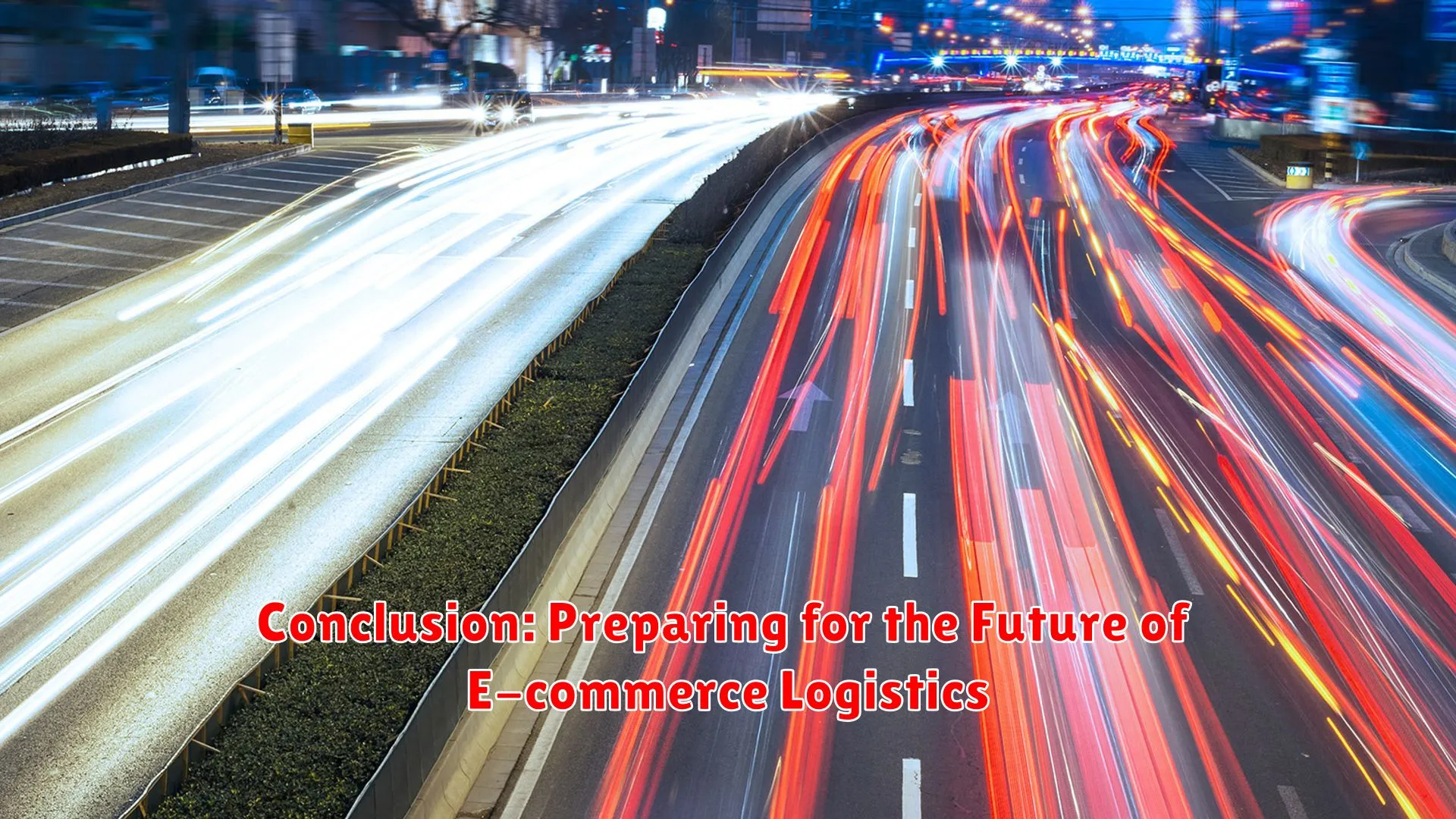
As we look towards the future of e-commerce logistics, it is evident that the industry is poised for significant transformations driven by innovations and emerging trends. To prepare for this dynamic landscape, businesses need to adopt a proactive approach and leverage the latest technologies and strategies to stay ahead of the curve.
One key aspect to focus on is enhancing last-mile delivery efficiency through the use of automation and data analytics. By optimizing delivery routes, implementing smart tracking solutions, and exploring alternative delivery methods such as drones or autonomous vehicles, companies can ensure faster, more reliable delivery to customers.
Furthermore, warehousing and fulfillment centers play a crucial role in the e-commerce supply chain. To meet the increasing demands of online shoppers, businesses should invest in scalable warehouse solutions, implement robotics and AI technologies for inventory management, and prioritize sustainability practices to reduce environmental impact.
Another vital consideration is creating seamless omnichannel experiences for customers. By integrating online and offline channels effectively, companies can provide a unified shopping journey that enhances customer satisfaction and loyalty. This involves streamlining inventory management across all platforms, offering multiple delivery options, and optimizing the checkout process for a smooth transaction experience.
In conclusion, to thrive in the future of e-commerce logistics, businesses must adapt to evolving consumer preferences, technological advancements, and market trends. By embracing innovation, optimizing their supply chain operations, and prioritizing customer experience, companies can position themselves for success in the competitive e-commerce landscape.
Conclusion
In conclusion, the future of e-commerce logistics is set to be revolutionized with innovative technologies and trends that prioritize efficiency, speed, and sustainability.

